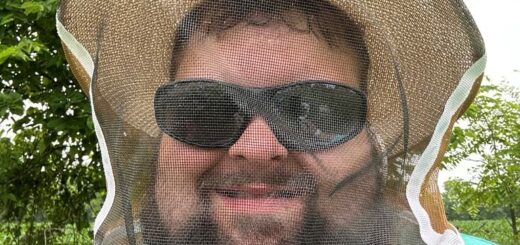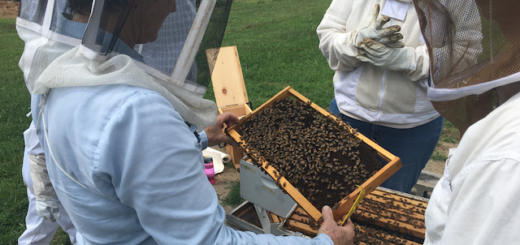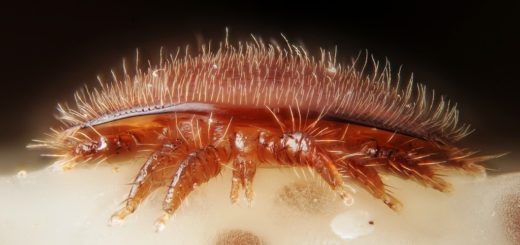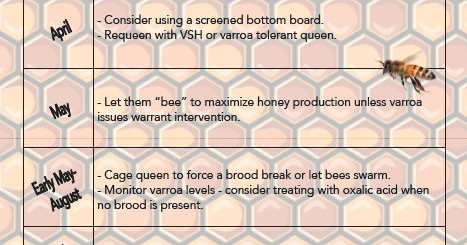Conversations with Beekeepers: Phil Uptmor
May 15, 2021
by Billie Hinton
PHIL UPTMOR
I grew up in South Texas next to a neighbor that kept bees and I was always fascinated by them. I recall seeing a few swarms come over to one of our trees and it was so impressive to see him retrieve this big ball of bees. He would give us a jar of honey each year that was very dark and so good eat.
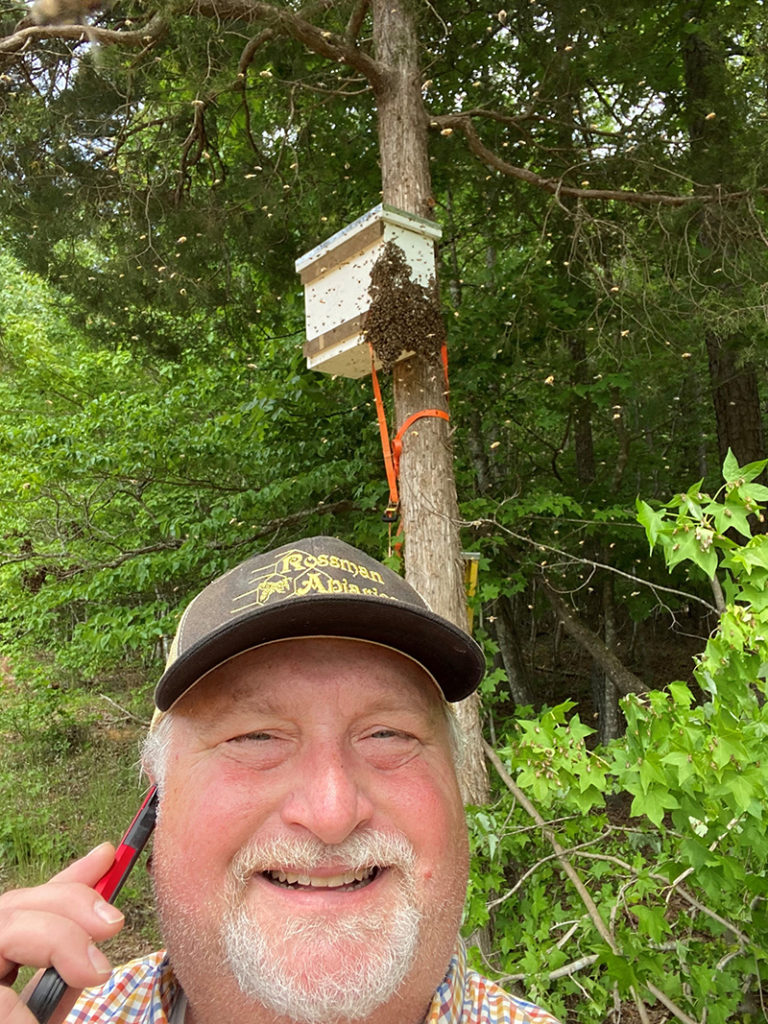
How long have you been keeping bees?
I started my beekeeping journey in 2015 after taking the introduction class.
Tell me about what drew you to the idea of beekeeping?
Part of the reason was sentiment but when I started my journey it was because we had a garden and I never saw honey bees on any of the vegetables. I realized later on that honey bees are not the best pollinators for particular vegetables. We are very fortunate in Chatham County to have the resources of not only the CCBA but also the NCSBA for educational opportunities. Plus, we have Debbie Roos, the state’s pollinator expert available to us!
Describe the day you got your first package, nuc, or full hive.
I purchased two packages and the installation went very smoothly. It was a bit unnerving, but I had read and watched enough videos to prepare for the event. At some point you just have to jump in and learn what works and what doesn’t, don’t be afraid to fail as long as you can learn from the experience.
Do you name your queens and/or colonies? If so, share the names and how you came up with them.
I tried naming the queens at one point but that did not last long at all. I number my colonies based on whether they are a split or swarm along with the year; e.g., SP1-21.
Tell me about your current hives, including hive style and apiary set-up.
I have one horizontal hive but most of my equipment is 8-frame medium equipment along with some deeps. I started out with all mediums and there are advantages and disadvantages to this, but it makes purchasing equipment easy.
What is your favorite thing about keeping bees?
I love to watch them go in and out of the hives and see what color pollen they are bringing in. I also enjoy walking near them and smelling the scents coming out of the colony, especially when they are making honey!
How would you describe your beekeeping philosophy?
Bees are going to do what bees want. Last year I did a really good job staying on top of inspections to minimize swarming and this year I missed one weekend of inspections and just about all my colonies decided they were going to swarm. Beekeeping connects me back to nature and certainly humbles me.
Tell me your favorite beekeeping story.
I don’t really have a favorite story, but there is nothing more exciting to me than watching a swarm occur and being able to catch it. The roar the bees make when airborne and the sweet smell in the air makes for a really exciting event.
What was your experience with bees as a child? Any memories that come to you as you think about it?
I don’t ever recall getting stung by a honey bee as a child, they always seemed to like going after my father when he was mowing. I do remember him jumping off the lawn tractor running from the bees when he was too close to the neighbor’s property line.
Is there a beekeeper or mentor who has inspired you on your beekeeping journey? Feel free to share anecdotes and/or appreciation.
We really are fortunate in Chatham County to have the CCBA and so many experienced members. There are so many I have learned from like Pat, Lori, David, Rebekah, and Jody. Pat really helped me when I was starting out and attending the monthly meetings is a great educational resource. The field days are a great way to see other management styles and what a treat it is when Nancy or Don show up. I have learned a lot by volunteering at the honey bee exhibit at the NC Zoo. It gets you close to other beekeepers from the state and there is so much to learn from them. I believe it is our responsibility to never stop learning about how we can help the honey bee not only for their survival, but the impact bees and other pollinators have on our food supply.
Do you have goals for yourself as a beekeeper that you’d like to share?
My goal is to have healthy, disease-free bees.
Any advice for a brand new beekeeper?
Read beekeeping books and magazines to get current information. Get a mentor if you can but this may mean meeting at the CCBA apiary during field days or going to the mentor’s apiary to help them with their bees. Most importantly, check for varroa mites before and after treatments-never assume a treatment worked.
Add anything you wish I’d asked but didn’t!
Join and participate in your local association and consider serving on the board, the time commitment is not that great and new people are always needed. Plus, you don’t even need to have bees to serve.

